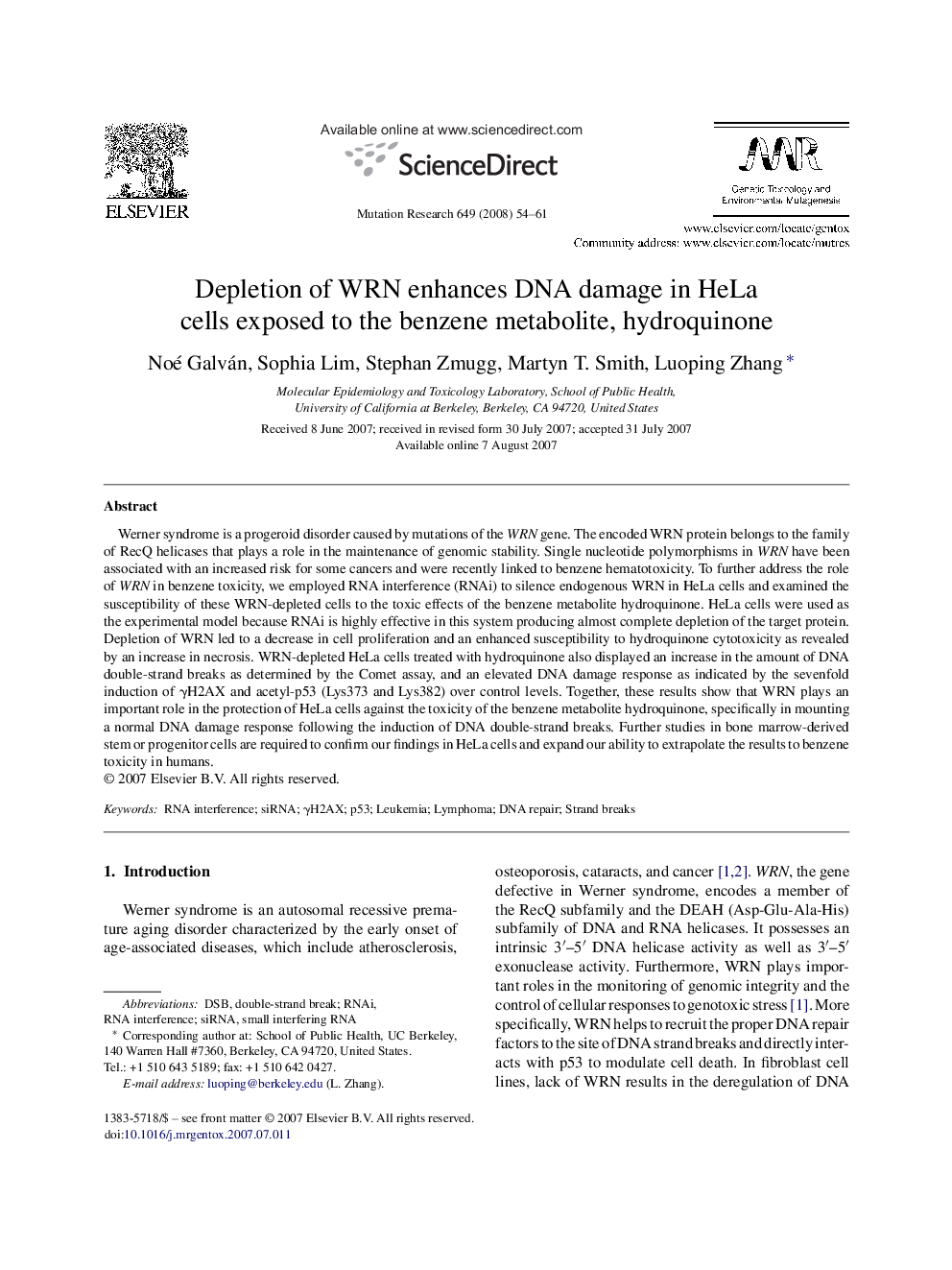| کد مقاله | کد نشریه | سال انتشار | مقاله انگلیسی | نسخه تمام متن |
|---|---|---|---|---|
| 2149092 | 1548637 | 2008 | 8 صفحه PDF | دانلود رایگان |

Werner syndrome is a progeroid disorder caused by mutations of the WRN gene. The encoded WRN protein belongs to the family of RecQ helicases that plays a role in the maintenance of genomic stability. Single nucleotide polymorphisms in WRN have been associated with an increased risk for some cancers and were recently linked to benzene hematotoxicity. To further address the role of WRN in benzene toxicity, we employed RNA interference (RNAi) to silence endogenous WRN in HeLa cells and examined the susceptibility of these WRN-depleted cells to the toxic effects of the benzene metabolite hydroquinone. HeLa cells were used as the experimental model because RNAi is highly effective in this system producing almost complete depletion of the target protein. Depletion of WRN led to a decrease in cell proliferation and an enhanced susceptibility to hydroquinone cytotoxicity as revealed by an increase in necrosis. WRN-depleted HeLa cells treated with hydroquinone also displayed an increase in the amount of DNA double-strand breaks as determined by the Comet assay, and an elevated DNA damage response as indicated by the sevenfold induction of γH2AX and acetyl-p53 (Lys373 and Lys382) over control levels. Together, these results show that WRN plays an important role in the protection of HeLa cells against the toxicity of the benzene metabolite hydroquinone, specifically in mounting a normal DNA damage response following the induction of DNA double-strand breaks. Further studies in bone marrow-derived stem or progenitor cells are required to confirm our findings in HeLa cells and expand our ability to extrapolate the results to benzene toxicity in humans.
Journal: Mutation Research/Genetic Toxicology and Environmental Mutagenesis - Volume 649, Issues 1–2, 8 January 2008, Pages 54–61